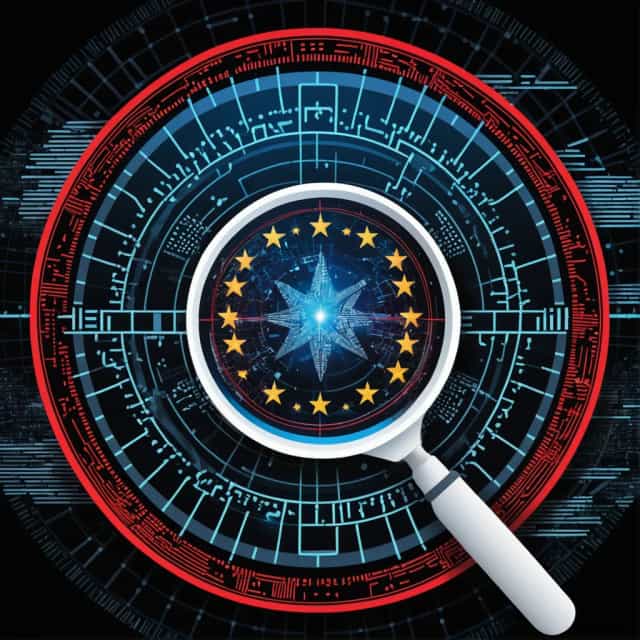
Image source: Block Media
Ohio Legislator Proposes Bill to Block Legal Personhood for AI
Ohio State Representative Thaddeus Claggett has introduced groundbreaking legislation aimed at prohibiting the assignment of legal personhood to artificial intelligence (AI). As reported by BeInCrypto on October 25, the proposed House Bill 469 (HB469) seeks to ensure that AI systems cannot be recognized as legal entities, manage employees autonomously, or be held criminally liable for their actions. This "common-sense" measure is positioned as a preventative step to address ethical and legal concerns as AI adoption continues to expand.
Key Provisions of House Bill 469
Claggett’s bill specifically outlines the restrictions AI protocols would face under the Ohio State law. According to HB469, AI systems would be barred from:
- Owning Property – This includes physical assets, intellectual property, or digital resources.
- Managing Human Employees – AI protocols and software cannot hold executive, managerial, or supervisory roles in the workplace.
- Criminal Liability – Responsibility for actions or legal violations by AI systems falls directly on human operators or developers.
These provisions represent a direct effort to prevent any future scenarios where artificial intelligence is granted the rights or responsibilities typically assigned to human or corporate entities. This approach not only reinforces existing legal frameworks but also holds humans accountable for AI-driven actions.
Revisiting the AGI and Personhood Debate
The bill taps into broader debates surrounding Artificial General Intelligence (AGI), a theoretical form of AI designed to perform intellectual tasks on par with human cognition. Despite AGI being a distant goal, developers of advanced language learning models (LLMs) are optimistic about the potential evolution of autonomous intelligence in the coming years.
However, HB469 aims to lay down early boundaries and create a legal precedent that precludes AI entities from being considered conscious beings or legal persons, regardless of future advancements in AGI. If passed, this bill would both regulate current applications of AI and establish protections against misinterpretations of technological sovereignty.
Interestingly, while AGI remains a futuristic concept, some business AI tools today already assume roles that resemble decision-making autonomy within corporate structures. HB469 appears poised to address these nuances, ensuring human oversight remains at the forefront of operations involving AI protocols.
Practical Implications for AI in Business
The immediate ramifications of HB469 go beyond theoretical concerns and directly impact how AI technologies can be utilized within organizations. The bill stipulates the following restrictions:
- Supervisory Roles: AI-powered systems would be prohibited from holding managerial, executive, or leadership positions, reflecting a broader legal emphasis on maintaining human accountability in workplaces.
- Property Ownership: AI would not be allowed to independently own or control assets, including intellectual property created by AI systems.
- Criminal Accountability: In cases of legal violations involving AI, such as harm caused by malfunctioning autonomous vehicles, responsibility would fall squarely on a human individual—whether that be the developer, a corporate representative, or another designated party.
The legislation draws a clear line between AI as a tool and human accountability for its misuse or errors. This framework underscores a need for proactive human supervision over increasingly autonomous AI systems while preemptively avoiding legal ambiguities around AI rights.
Broader Impacts and the Future of AI Regulation
HB469 carries significant implications not just for Ohio but potentially for the broader regulatory landscape across the U.S. Claggett, a Republican lawmaker, introduces an especially intriguing angle due to his party’s historical stance on technology regulation. While the GOP has championed a pro-blockchain and crypto stance in recent years, internal divisions have emerged regarding AI governance.
The bill is not strictly "anti-AI"; rather, it emphasizes ethical safeguards for emerging technology. However, its passage could face pushback from the AI industry, which has traditionally resisted strong regulatory oversight.
Should Ohio enact HB469, it could serve as a bellwether for similar legislation across other states or even inspire federal action. Policymakers increasingly feel the urgency to address AI-related issues as the technology grows into a cornerstone of the global economy. Ethical and legal frameworks will shape not only the adoption of AI but also the responsibilities of individuals and corporations that deploy these systems.
From corporate boardrooms to legislative chambers, debates surrounding AI regulation are entering a critical phase. With bills like HB469, lawmakers are beginning to carve out a new legal frontier—one where artificial intelligence must operate firmly within the bounds of human oversight and accountability.










